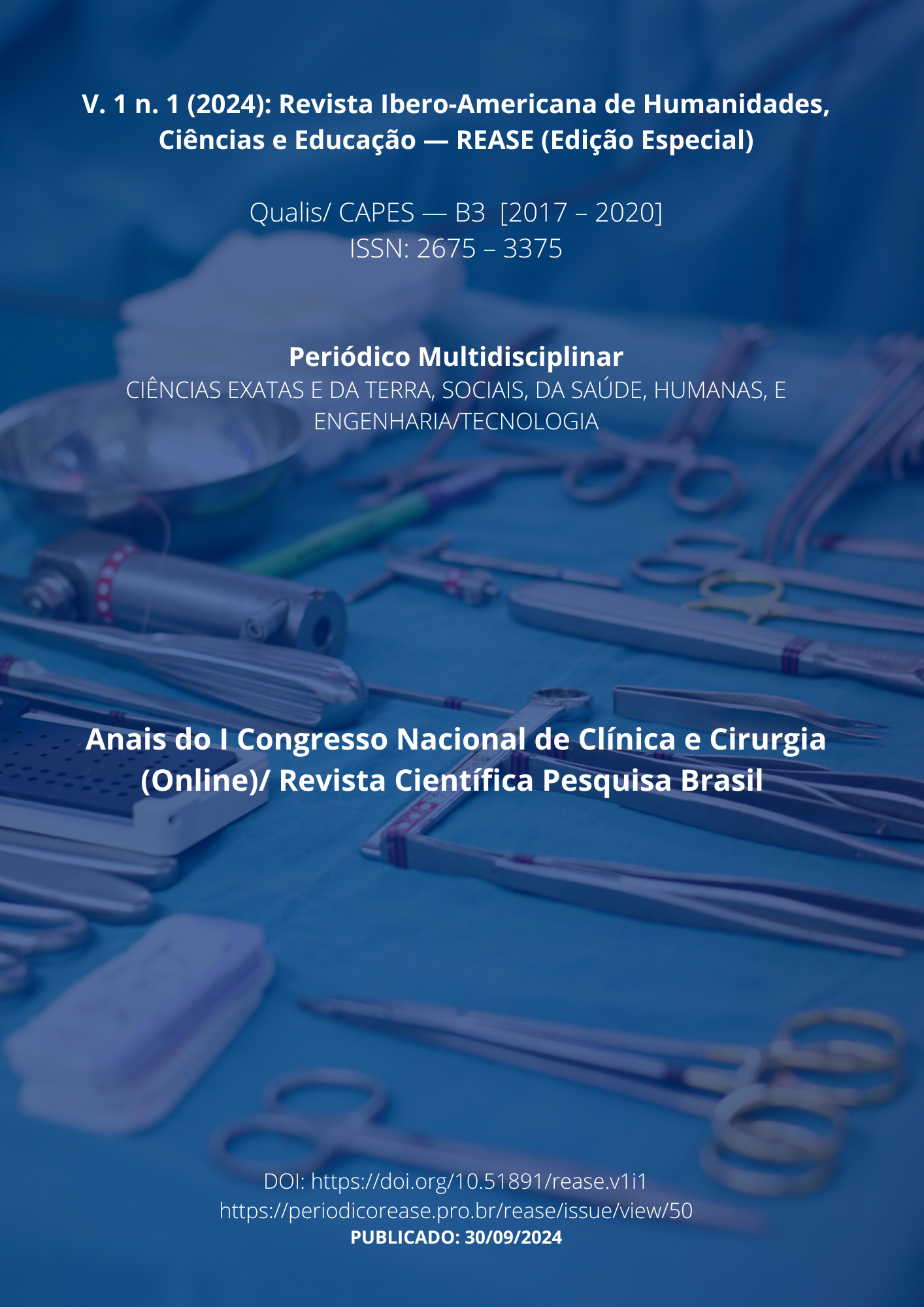NUTRITIONAL INTERVENTIONS IN THE MANAGEMENT OF NON-ALCOHOLIC STEATOHEPATITIS: EVIDENCE FROM INTEGRATIVE REVIEWS
DOI:
https://doi.org/10.51891/rease.v1i1.15889Keywords:
Nonalcoholic Steatohepatitis. Nutritional interventions. Hepatic managementAbstract
Introduction: Nonalcoholic steatohepatitis (NASH) is a severe form of nonalcoholic fatty liver disease (NAFLD) characterized by liver inflammation and damage, which can progress to cirrhosis and hepatocellular carcinoma. The management of NASH presents significant challenges, as there are no widely approved effective pharmacological therapies. In this context, nutritional interventions have been investigated as central strategies to improve liver health and reduce disease progression. Objective: The objective of this integrative review is to gather and analyze the evidence on the impact of nutritional interventions in the management of nonalcoholic steatohepatitis, focusing on their implications for disease progression and improvement of liver markers. Methodology: A comprehensive search was performed in the PubMed, Scopus, and Web of Science databases, covering studies published between 2010 and 2023. Inclusion criteria included randomized controlled trials, cohorts, and systematic reviews that evaluated the efficacy of nutritional interventions, such as hypocaloric diets, reduction of refined carbohydrates, increased fiber, and consumption of omega-3 fatty acids, in the management of NASH. Of the 112 articles initially identified, 27 met the inclusion criteria and were analyzed. Results and Discussion: Evidence indicates that nutritional interventions focused on caloric restriction and modification of macronutrient composition, such as reduction of simple sugars and increase in fiber and high-quality protein intake, resulted in significant improvements in liver parameters, including reduction of inflammation and liver fibrosis. The consumption of omega-3 fatty acids also stood out for its anti-inflammatory and hepatic triglyceride-reducing effect. Diets based on Mediterranean patterns have shown promising effects in reversing steatosis and controlling body weight. However, long-term adherence to these interventions remains challenging, influenced by cultural and socioeconomic factors. Conclusion: Nutritional interventions play a key role in the management of NASH, proving effective in improving liver markers and reducing disease progression. Although the results are promising, there is a need for more long-term clinical trials to establish standardized nutritional guidelines for this population.
Downloads
Downloads
Published
How to Cite
Issue
Section
Categories
License
Atribuição CC BY

